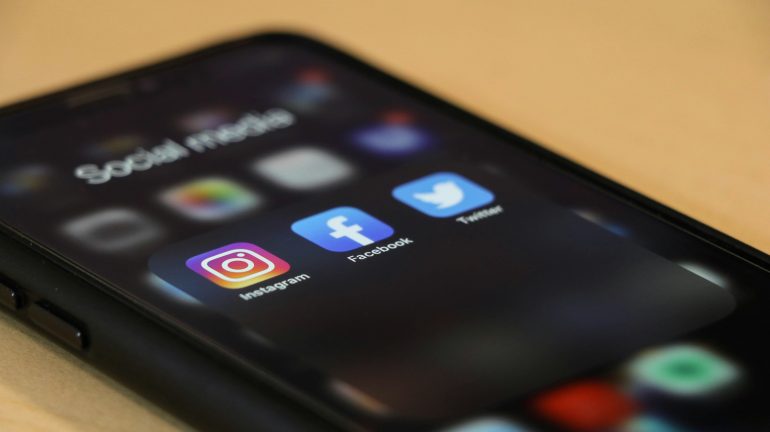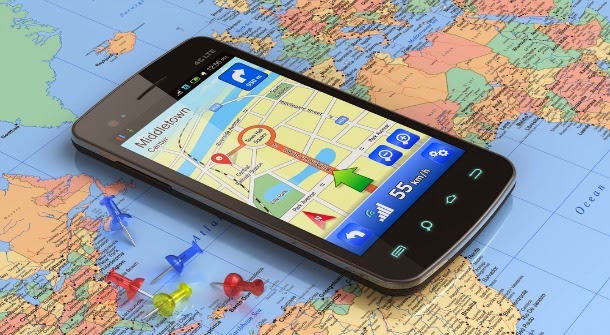Social media is now inseparable from daily life, reshaping communication, interaction, and our perception of the world in the digital age. For young adults, in particular, these virtual networks serve as conduits for connection, self-expression, and information sharing. Despite benefits, prolonged usage raises concerns for youths’ mental well-being, prompting increased attention to its effects.
As the prevalence of online platforms continues to surge, so does the discourse surrounding its potential implications on mental health. These platforms enable socialization but introduce dynamics impacting well-being, highlighting the nuanced relationship between social media and psychological health.
In this article, we explore how social media impacts cognitive wellness in adolescents, examining its complex interplay with various contributing factors.
Social Media and Self-Image
Social media use by youth is nearly universal, according to the U.S. Surgeon General’s Advisory. Up to 95% of youth ages 13–17 report using an online platform, with over a third using it almost constantly. However, this widespread usage intertwines with pervasive influences on cognitive wellness, particularly concerning self-image.
Digital networks flood users with idealized depictions, fostering unrealistic standards that contribute to feelings of inadequacy and comparison. Constant comparison with carefully crafted posts often leads adolescents to measure their lives, fueling low self-esteem and inadequacy. Conforming to idealized standards pressures self-perception, impacting cognitive well-being. It leads to heightened anxiety, depression, and body dissatisfaction.
Cyberbullying and Online Harassment
In the digital sphere, young adults face the perils of cyberbullying and online harassment, impacting their psychological wellness significantly. Social media anonymity can embolden individuals to perpetuate harassment, intimidation, and abuse, fostering a toxic online culture. Despite the digital landscape’s benefits, these harmful behaviors pose serious threats to the well-being of adolescents.
According to UNICEF, experiencing cyberbullying triggers feelings of shame, anxiety, and insecurity, often leading to withdrawal from loved ones. Loneliness, headaches, and nausea may accompany negative thoughts and loss of motivation. Cyberbullying can lead to skipping school and substance abuse. Seeking support from trusted individuals like friends, family, or school counselors is crucial for addressing the psychological health impact of cyberbullying.
Cyberbullying and online harassment encompass malicious comments, threats, and the spread of rumors or private information. To navigate the digital domain responsibly, fostering empathy, respect, and accountability within virtual communities is crucial. As digital natives engage online, promoting a culture of understanding and responsibility helps mitigate the harmful effects of cyberbullying.
Fear of Missing Out (FOMO) and Social Comparison
Fear of Missing Out (FOMO) proliferates due to the incessant flow of curated content on social media platforms. Young adults often feel inadequate and anxious as they compare their lives to the seemingly perfect experiences depicted by their peers online. This phenomenon exacerbates feelings of insecurity and highlights the pervasive influence of digital networks on cognitive well-being.
Digital networks inundate users with updates and photos showcasing social events, travel adventures, and accomplishments. This barrage fosters a sense of exclusion among those who feel they miss out on meaningful experiences.
The incessant cycle of comparison fueled by digital networks exacerbates feelings of insecurity, loneliness, and dissatisfaction with one’s own life. Adolescents facing FOMO must prioritize mindfulness, self-awareness, and gratitude, fostering genuine connections and experiences over virtual validation.
Addiction and Digital Detox
Social media’s constant notifications, curated feeds, and fear of missing out (FOMO) can escalate into addictive behavior. This digital dependency profoundly affects mental well-being, inducing feelings of anxiety and disconnection from reality. The allure of online platforms can easily overshadow their harmful effects, necessitating mindful usage and moderation.
Digital network addiction manifests through excessive scrolling, neglecting responsibilities, and withdrawal symptoms like anxiety when unable to access platforms. This addiction also leads to cognitive health issues, such as increased stress and depression stemming from social comparison. Recognizing these signs is crucial for addressing the detrimental impact of digital network addiction on overall well-being.
If you find yourself struggling with these signs, it’s time to consider a digital detox. Taking a break from online platforms or deleting social media accounts, even for a short period, can be incredibly beneficial for cognitive health.
There are various benefits of deleting social media for mental health, including reduced stress and anxiety, improved sleep, and enhanced self-esteem. Also, it fosters increased focus, productivity, and stronger real-world connections with loved ones.
Tru Lawsuit Info offers practical tips for taking a break from digital networks. Before disconnecting, inform friends and family about the break, emphasizing its importance for mental health. Replace virtual communities with activities or hobbies, and find alternative ways to stay in touch. Decide on the break’s duration to provide clarity and track its impact.
Positive Aspects of Social Media
In the discourse on social media, negative narratives often dominate, yet it’s vital to recognize its potential for good. While navigating its pitfalls is essential, discounting the positive aspects creates an incomplete perspective. Acknowledging both sides fosters a balanced understanding of its impact on society.
Platforms provide access to diverse voices, perspectives, and educational content. Adolescents can discover new passions, learn new skills, and engage with role models who inspire them. Educational communities and groups can offer valuable resources, fostering intellectual curiosity and personal growth.
Digital networks can be a powerful tool for connection and community building. According to a National Institute of Health study, 58% of adolescents report feeling more accepted due to social media. This finding underscores the perceived social benefits that adolescents derive from their engagement with online platforms.
It fosters a sense of belonging, especially for youths facing unique challenges or navigating specific identities. Online communities offer support, understanding, and a platform to share experiences with like-minded individuals, reducing feelings of isolation.
Coping Mechanisms and Resilience
For young adults, navigating the complexities of social media’s impact on cognitive wellness requires cultivating effective coping mechanisms and resilience. These strategies empower individuals to confront challenges, setbacks, and digital stressors with adaptability and strength. By fostering adaptive responses to adversity, adolescents can navigate the digital landscape with greater resilience and well-being.
One effective coping mechanism involves setting boundaries and establishing mindful usage habits when engaging with digital networks. Also, building a robust support network with trusted individuals offers invaluable emotional support and guidance during times of distress or uncertainty.
Digital Literacy and Education
In the era of social media, prioritizing digital literacy and education among youth is crucial for responsible online engagement. Digital literacy involves developing skills to navigate the digital landscape critically, distinguishing between reliable information and misinformation. Understanding the impact of online interactions on mental wellness is integral to fostering informed and thoughtful engagement with digital platforms.
Schools can empower adolescents by integrating digital literacy into educational programs, enabling critical evaluation of online content. Recognizing biases safeguards mental wellness in the digital age.
Navigating the Digital Landscape
In the dynamic digital landscape, social media’s impact on young adults’ mental wellness is multifaceted and continuously evolving. These platforms significantly influence the psychological well-being of young adults, fostering connection while perpetuating feelings of inadequacy and isolation.
However, within the digital network’s influences, a pathway guided by mindfulness, resilience, and critical engagement offers a direction forward amid complexities. Young adults can navigate the digital age with resilience, compassion, and authenticity by leveraging its transformative potential for positive change.





